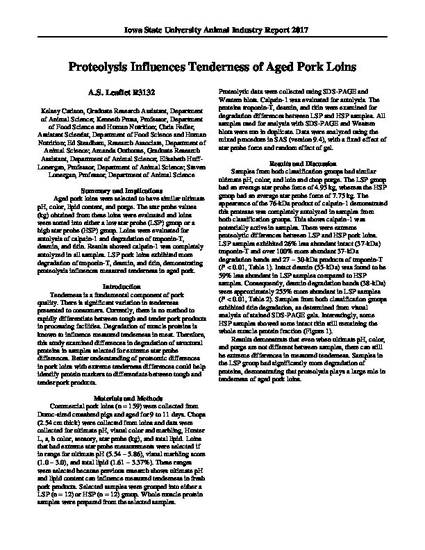
Unpublished Paper
Proteolysis Influences Tenderness of Aged Pork Loins
Animal Industry Report
Extension Number
ASL R3132
Publication Date
2017
Disciplines
Topic
Animal Products
Summary and Implications
Aged pork loins were selected to have similar ultimate pH, color, lipid content, and purge. The star probe values (kg) obtained from these loins were evaluated and loins were sorted into either a low star probe (LSP) group or a high star probe (HSP) group. Loins were evaluated for autolysis of calpain-1 and degradation of troponin-T, desmin, and titin. Results showed calpain-1 was completely autolyzed in all samples. LSP pork loins exhibited more degradation of troponin-T, desmin, and titin, demonstrating proteolysis influences measured tenderness in aged pork.
Copyright Holder
Iowa State University
Copyright Date
2017
DOI
https://doi.org/10.31274/ans_air-180814-328
Language
en
Citation Information
Kelsey Carlson, Kenneth Prusa, Chris Fedler, Ed Steadham, et al.. "Proteolysis Influences Tenderness of Aged Pork Loins" (2017) Available at: http://works.bepress.com/elisabeth_huff-lonergan/111/
